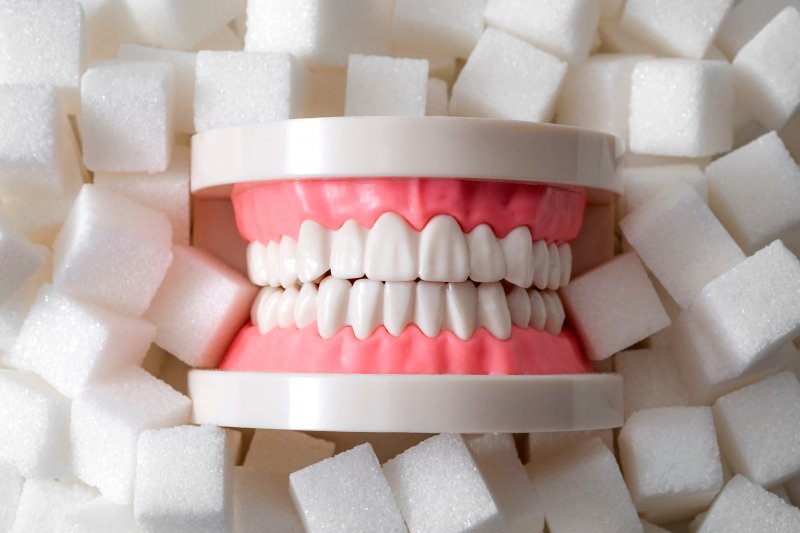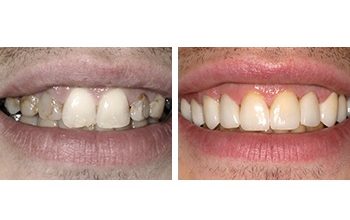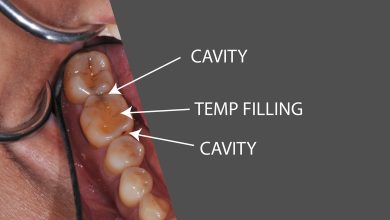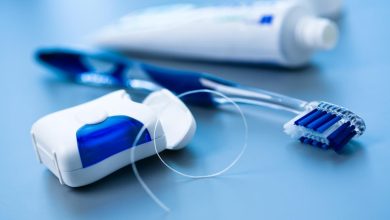Can Alcohol Cause Tooth Decay? Discover the Surprising Truth

You may have a question that Can Alcohol Cause Tooth Decay? Alcohol can indeed cause tooth decay due to its high sugar content and acidic nature. Excessive consumption of alcohol can lead to the erosion of tooth enamel and the growth of harmful bacteria in the mouth, resulting in cavities and tooth decay.
Furthermore, the acidic pH level in alcoholic beverages weakens the teeth, making them more susceptible to decay. Protecting oral health requires minimizing alcohol consumption and maintaining proper dental hygiene practices like regular brushing, flossing, and visiting the dentist for routine check-ups and cleanings.
Taking these precautions can help prevent alcohol-induced tooth decay and preserve a healthy smile.
Alcohol’s Impact On Dental Health
Alcohol’s impact on dental health is a topic of concern. One area of focus is its effects on tooth enamel. Research has shown that regularly consuming alcoholic beverages can contribute to tooth decay. The acidic nature of alcohol, combined with its drying effect on the mouth, creates an environment favorable for the growth of harmful bacteria. These bacteria produce acids that erode tooth enamel, leading to cavities.
It is important to note that the type and frequency of alcohol consumption play a role in its impact on dental health. Hard liquors and sweetened alcoholic beverages have a higher risk of causing tooth decay compared to moderate consumption of wine or beer. However, regardless of the type of alcohol consumed, maintaining good oral hygiene practices is essential in minimizing the risk of tooth decay.
Understanding the link between alcohol consumption and cavities allows individuals to make informed choices about their dental health. Limiting alcohol intake, practicing proper oral hygiene, and visiting the dentist regularly contribute to maintaining a healthy smile.
Alcohol Content And Sugar Content In Drinks
Alcohol consumption has long been associated with various health risks, including tooth decay. One of the main factors contributing to tooth decay in alcoholic beverages is their high sugar content. Hidden sugars in these drinks can wreak havoc on our teeth.
When we consume alcoholic beverages, it’s important to be aware of the sugar content present. Many popular drinks, such as cocktails and mixed drinks, are often laden with sugary mixers and syrups. These hidden sugars can lead to increased acid production in the mouth, creating an ideal environment for harmful bacteria to thrive and cause tooth decay.
Additionally, alcohol itself can have a drying effect on the mouth, reducing saliva production. Saliva plays a crucial role in neutralizing acids and helping to wash away food particles and bacteria. When saliva production decreases, the risk of tooth decay increases.
It is important to be mindful of our alcohol and sugar intake and practice good oral hygiene habits to maintain optimal dental health. Limiting consumption of sugary alcoholic beverages, brushing twice a day, flossing regularly, and visiting the dentist regularly can help minimize the risk of tooth decay.

Alcoholic Drinks That Are Harmful To Teeth
Alcohol, especially certain types of drinks, can have negative effects on dental health. High-sugar cocktails, such as margaritas and daiquiris, are particularly harmful as they contain a combination of alcohol and sugary mixers. The high sugar content provides fuel for harmful bacteria in the mouth, leading to plaque formation and eventually tooth decay. Additionally, these cocktails often have a high acidity level due to the citrus juices or carbonated mixers used. Acidic beverages can erode the enamel on teeth, making them more susceptible to decay and sensitivity. It is important to consume such drinks in moderation and practice good oral hygiene habits to minimize the impact on dental health.
Tips For Maintaining Dental Health While Consuming Alcohol
Alcohol consumption can have negative effects on dental health, including the potential for tooth decay. However, there are steps you can take to maintain good oral hygiene while still enjoying alcoholic beverages.
First and foremost, it is essential to practice good oral hygiene habits. This includes brushing your teeth twice a day with a fluoride toothpaste and flossing daily to remove plaque and food particles that can contribute to decay. Don’t forget to replace your toothbrush regularly to ensure effective cleaning.
Choosing alternative drink options can also help preserve dental health. Opt for non-alcoholic and sugar-free beverages, as alcohol and sugary drinks can contribute to tooth decay. Mixing your alcoholic beverages with water can help dilute their acidic content and reduce the risk of damage to tooth enamel.
Additionally, it is important to stay hydrated by drinking plenty of water, as this helps to stimulate saliva production, which is crucial for protecting teeth from decay. Finally, regular dental check-ups and cleanings are essential to detect and treat any potential issues early on.

Credit: www.chaskadentist.com
Frequently Asked Questions Of Can Alcohol Cause Tooth Decay?
Can A Dentist Tell If You Drink Alcohol?
Dentists can detect alcohol consumption through dental exams, as it may cause oral health issues. They can spot signs like tooth decay, gum disease, and dry mouth. It’s important to be honest about alcohol consumption to receive appropriate dental care.
How Can I Protect My Teeth From Alcohol?
To protect your teeth from alcohol, follow these guidelines: Limit your alcohol consumption, as excessive drinking can lead to tooth decay and gum disease. Drink water alongside alcohol to help rinse away acids. Avoid brushing immediately after consuming alcohol to prevent enamel damage.
Visit your dentist regularly for check-ups and cleanings.
What Drinks Cause The Most Tooth Decay?
The drinks that cause the most tooth decay are sugary sodas, fruit juices, and energy drinks.
What Are The Dental Effects Of Alcohol?
Alcohol can have negative effects on dental health, including bad breath, dry mouth, tooth decay, gum disease, and mouth sores. It can weaken tooth enamel, increase stains, and contribute to oral cancer. Moderation and good oral hygiene practices are key to minimizing these dental effects.
Conclusion
Consuming alcohol can indeed contribute to tooth decay. The high sugar content and acidic nature of many alcoholic beverages can erode tooth enamel and promote the growth of harmful bacteria. It is important to maintain a balanced diet, practice good oral hygiene, and drink alcohol in moderation to protect your oral health.
Remember, prevention is key in preserving your smile!






prices of cialis